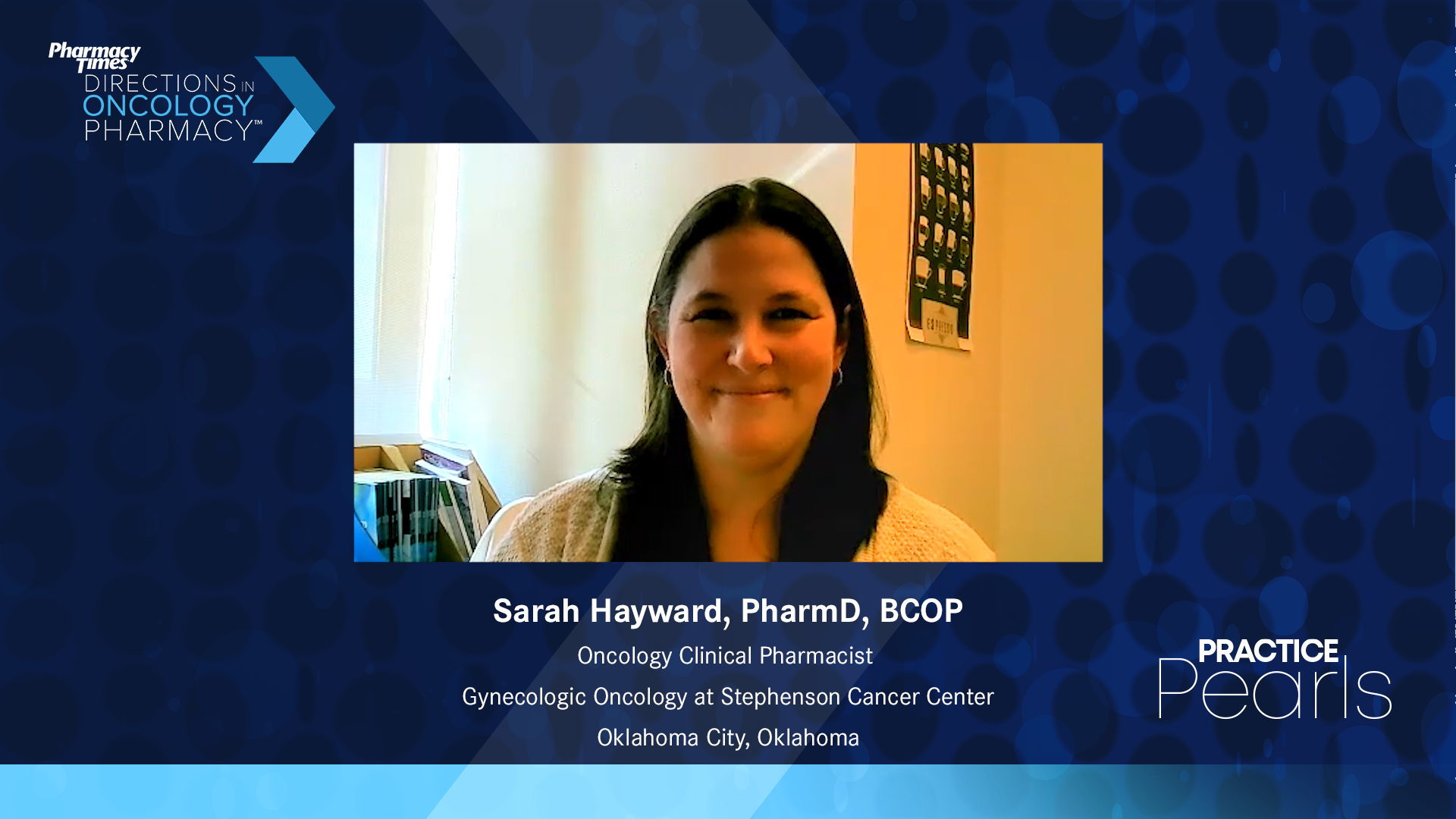Jennifer MacDonald, PharmD, BCOP: Sarah and Dr. Monk, what strategies do you use to keep up to date with all of this changing and rapidly changing data?
Bradley J. Monk, MD, FACS, FACOG: Go ahead, Sarah.
Sarah Hayward, PharmD, BCOP: Sure. Part of that is just being part of the team. Sometimes it’s an email from Dr. Richardson saying, “Look what came out today.” It’s on mailing lists, part of SGO [Society of Gynecologic Oncology] sending you your daily, “Here’s what’s happening in oncology news”, and things of that nature. It’s going to meetings and hearing what’s new. It is to keep you informed of these publications. These outlets will provide this last minute information. After that, it goes through the vine.
Bradley J. Monk, MD, FACS, FACOG: The team of course, but also being part of the conversation, right?
Sarah Hayward, PharmD, BCOP: Yes, it’s true.
Bradley J. Monk, MD, FACS, FACOG: I learned a lot from you guys today.
Sarah Hayward, PharmD, BCOP: Yes.
Bradley J. Monk, MD, FACS, FACOG: When you talk to smart people, you might get smarter. The other key point is research. If you’re investing time to improve a patient’s life through a clinical trial, you’re all in the know when that clinical trial reports. It’s important to be part of the team and part of the conversation, but there’s no better way to be specific than to enroll in a clinical trial. The NCCN [National Comprehensive Cancer Network] recommends that in the event of recurrent platinum-resistant ovarian cancer, the first step is to enroll your patient in a clinical trial. Both of your sites are very good at this. If any of our listeners would like to become a GOG Foundation research site, it is very easy to register and we need your help.
We’re also going to have a report of recurrent platinum-resistant ovarian cancer studies in 2022. You’ve probably heard earlier this week that in the phase 2 trial of mirvetuximab soravtansine, ovarian cancer platinum-resistant recurring had a response rate of over 30% which was durable and tolerable. This will be the next antibody-drug conjugate [ADC], the first in ovarian cancer. As you know we had tisotumab vedotin [Tivdak] in cervical cancer since September 20. But ADCs are the next line of antibody-drug conjugates. You are pharmacists, so you see them in the case of breast cancer, bladder cancer and liquid tumors. But it’s a big thing for us, because antibody-drug conjugates are new to us.
Jennifer MacDonald, PharmD, BCOP: Yes, and that piece of education. I gave my doctors a hard time a few weeks ago. Obviously cervical cancer had Tivdak, and now with mirvetuximab soravtansine, they both have some eye toxicity. And the doctors would say, “It’s a class effect of the ADCs.” I was like, “No, it’s not a class effect of the ADCs. It’s just unfortunately the 2 you’ve seen. But that’s where the education element and then coming together as a team gets really great because you can pull from other things that you’ve seen. Sometimes as a pharmacist, when you are BCOP [Board Certified Oncology Pharmacist], I’m still learning what’s going on in lymphoma, breast cancer and all the other areas. It is great to follow this literature.
Bradley J. Monk, MD, FACS, FACOG: Absoutely.
Jennifer MacDonald, PharmD, BCOP: Because there are data or agents that can be useful to you in general and that might spark research ideas like, “Why wouldn’t this work for patients with ovarian cancer?” or whatever tumor it might be. That’s obviously what they took from ovarian cancer to some extent with these PARP inhibitors. “Great, what if I used this in prostate cancer and BRCA– mutated or breast cancer and BRCA-mutated? It’s obviously hard to keep up with oncology in general, but with other disease states it can also be very helpful in sparking that idea or thoughts for you.
Bradley J. Monk, MD, FACS, FACOG: But let’s take these 2 examples. In the HER2-mutated uterine serous cancer, there is so much excitement in HER2– extrapolable positive breast cancer. Trastuzumab [Herceptin]/tucatinib [Tukysa] is an FDA [Food and Drug Administration] approved example, a HER2 antibody-drug conjugate. Or with hormonally sensitive breast cancer, there’s the aromatase inhibitor CDK4/6. We may use these drugs or, in your opinion, develop clinical trials. I do both to bring you better therapies than trastuzumab in HER2-mutated tumors and better hormone therapies than megestrol and letrozole. We must work together. I like to hear what they do in other tumors because they are more common. And because they are more mainstream, they can do clinical trials on a different scale. But we are catching up.
Jennifer MacDonald, PharmD, BCOP: Yes of course. I got excited when Keytruda [pembrolizumab]/Lenvima [lenvatinib] later got approval for renal cell carcinoma. I was like, “Great for them!”
Bradley J. Monk, MD, FACS, FACOG: I know. To the right?
Jennifer MacDonald, PharmD, BCOP: It doesn’t happen that often, but I was so happy about it when I saw it come to fruition.
Transcript edited for clarity

